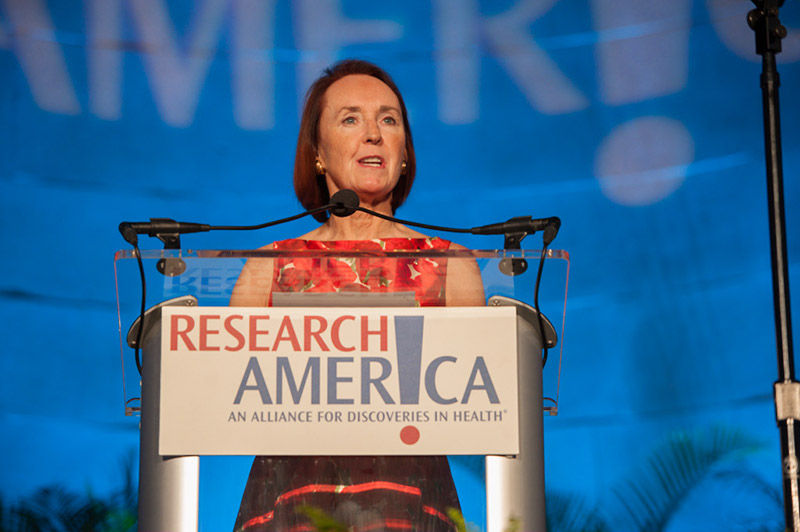Three Minute Thesis

 Dear Research Advocate,
Dear Research Advocate,
During a visit today to Augusta University, which is home to the former Medical College of Georgia, I heard grad students distill their multiple-hour thesis presentations into 3 minutes. You may be familiar with the “3MT” concept, but this was my first experience of it. What a terrific grounding for researchers who want to engage in public outreach and advocacy! I also heard– not for the first time– that grad students in science want communications training, but rarely receive it. More widespread adoption of 3MT would undoubtedly help bridge that gap.
During a House Labor-H Subcommittee hearing this week focused on NIH, champions from both sides of the aisle reaffirmed their support for robust investment. The Committee’s Ranking Member, Nita Lowey (D-NY), called for another doubling of the NIH budget, and Labor-H Chairman Tom Cole (R-OK) expressed concern that the President’s proposed $5.9 billion cut to NIH could be “penny wise and pound foolish.” (There were other notable sound bites that go to the heart of matter, three minute theses in their own right!)
Indirect costs received significant attention during the hearing, which was not all that surprising: an Atlantic article published shortly thereafter reported that the President’s full budget proposal may include a 10% cap on these costs. NIH Director Francis Collins, who provided testimony at the hearing, reinforced the importance of facilities and administrative components of research classified as indirect costs and suggested that if efficiency is the goal, one fruitful path would be to rationalize the onerous paperwork requirements surrounding federally funded research. Stay tuned for more discussion on indirects.
Back to the budget. If the President were to secure his proposed $54 billion cut to non-defense discretionary spending (NDD) — the spending category that encompasses transportation, energy, education, criminal justice, meals on wheels, research, and more — the resulting funding level would be 25% below its 2010 level in inflation-adjusted terms. But let’s remember that regardless of what the Executive branch proposes, Congress is the branch responsible for writing the actual budget. The real, rather than potential, budget issue is this: unless Congress abandons the “sequestration” budget caps established under the 2011 Budget Control Act and negotiates new ones, FY18 NDD funding will still be 16% below the 2010 level. Ask your members of Congress to establish budget parameters that reflect where our nation is now, not where it was three Congresses ago.
So much of importance to the research stakeholder community is happening in real time! Yesterday, HHS Secretary Price sent a letter to key committee leaders urging them to dramatically increase FDA user fees in accordance with the skinny budget proposal. It is unlikely Congress will comply with this request, since 1) it does not serve the public interest to establish industry as the sole investor as FDA pre-market review funding needs evolve; 2) industry is unlikely to agree to such a massive increase in user fees; and 3) if bill passage is delayed past July 29, FDA will be forced to issue reduction in force (RIF) notices. We continue to support the current bill and will keep you posted.
One final note on the NIH hearing: Several members of Congress voiced strong support for the Fogarty Center, which the Administration has proposed eliminating. Please join Research!America and our partners on Thursday, May 25 from 2:00-3:00 p.m. EST for a timely webinar: The Fogarty International Center: How Americans Benefit from Global Health Research. Fogarty Director Dr. Roger Glass and two Fogarty-supported Johns Hopkins global health researchers will join us to discuss the center’s crucial mission and impact.
Tomorrow COB is the nominations deadline for Research!America’s 2018 Advocacy Awards. If you have a nominee in mind, give Ellie a call at 571-482-2717 and we’ll help you complete the streamlined nomination survey. Think of it as a three minute thesis and wow the awards committee!
Sincerely,
Mary Woolley




